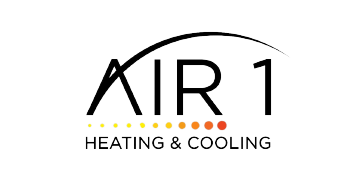Have you ever smelled that weird, awful smell in your house that wouldn’t go away no matter how many times you clean and disinfect? Does it smell like a poorly ventilated locker room or a dirty sock? Does the smell occur and linger when your HVAC system is turned on?
Wait. Let’s stop right there. If your answer to all these questions is yes, it might be a case of Dirty Sock Syndrome (DSS).
What Is Dirty Sock Syndrome?
Before defining that stinky phenomenon, let us first address the most common suspicion. No, this is not caused by your son’s tendency to dry his wet socks on your air-conditioning unit. These socks did not get sucked into your air ducts. However, the smell is the same, so splitting hairs may be unnecessary.
Dirty Sock Syndrome occurs when mold and bacteria start to grow on the coils of your air conditioner or heat pump. The awful smell develops when dust, dirt, and moisture have ample time to accumulate on the evaporator coil in between cycles. These elements accumulate when your air conditioning unit is not frequently used. Usually, this occurs during spring.
In the process, the bacteria and mold that grew and accumulated on the coils were then blown into your house when you turned on your air conditioning unit. Imagine lying on the couch and yawning with your mouth wide open as you breathe in the cold air from your air conditioner. You’re actually taking in a tremendous amount of indoor air contaminants.
What Are the Risks of Dirty Sock Syndrome?
Are there any risks to your health and even to your HVAC when Dirty Sock Syndrome attacks?
Basically, DSS does not impose a life-threatening risk to your health. But there are minor health problems DSS can bring to your family. These include irritation of the eyes, nose, and throat, headache, fatigue, and respiratory diseases.
These health irritants may not manifest all at once. But if you spend most of your time at home, the onset of these symptoms is highly likely.
Now, for your HVAC, one sure problem is the odor. A foul-smelling HVAC could lead to decreased performance and durability. Another concern is your air filtration. Do you change out your air filters regularly? The filter catches bacteria and mold spores, preventing them from spreading into your home. But if you keep the filter there for an extended period without replacing it, the filter becomes less and less effective. Soon, your filter will not be able to keep contaminants from blowing through your home.
How Do You Fix Dirty Sock Syndrome?
Let’s get straight to the point: the best way to solve DSS is to call in professional contractors to inspect and repair your HVAC system. Depending on the status of the unit, your air conditioning repair and maintenance service may involve cleaning your AC system’s evaporator coil or getting it replaced. Professional contractors have the training and experience to put everything to rights soon enough!
Conclusion
Keeping your HVAC system clean will keep it from accumulating mold and bacteria. Consider changing and cleaning your AC filter frequently to ensure maximum functionality. The next time you have a dirty sock smell, check immediately if it’s coming from your HVAC unit. Call in the professionals to get rid of the problem ASAP!
When was your last HVAC service? If it’s been several months or a year, now is the time for another session. Air1 LLC offers comprehensive air conditioning services to care for your home or business’s cooling system! We serve in Short Hills, Millburn, Summit, and Chatham, NJ. Request a free estimate today!
